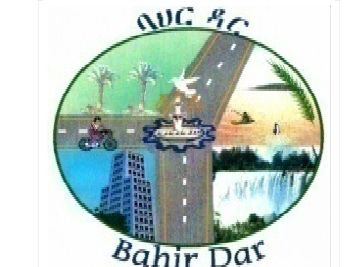History
Evidence suggests that the city of Bahir Dar was founded in the early 13th century and, like other parts of Ethiopia, was ruled by Lake Tana and its environs by representatives of the newly formed Solomonic dynasty.
The historical development of the city has begun around the 14th c following the establishment of Kidanemihret church at the present sites of St. Geore church. Considering its adjacency to Lake Tana and Abay river it was named as Bahir Dar which means near to the sea, during the reign of Emperor Yikunoamlak. The city is located at the north-west part of the country. The city by road transportation of the two alternative routes is located at a distance of 563 kms via Bure and 460 kms via Motta from the capital city, Addis Ababa. Whereas, through air transportation it will only takes 45 minutes by the bombard jet to reach Bahir Dar city from Addis Ababa. Currently the city has a relatively well organized bus terminal which serves to connect the city to the nearby villages and other cities of the country. On top of that, there are special buses like Selam and Sky bus for those who want to reach to Bahir Dar from Addis with a relatively better service and comfort.
The city has begun to serve as the capital city of the Amhara National Regional State since 1993. Now a day’s given the overall situation of the city it is one of the safest, the most beautiful, well planned and leading tourist destination in Ethiopia. In the year of 2002 the city has been praised by the UNESCO in receiving cities for peace prize for its remarkable measures in addressing the challenges of rapid urbanization and related problems.
Due to its strategic geographic position the city also serves as a place of transit to the old historical cities of Gondar, Lalibela, Axum and the Semien mountains both through road and air transportation.
In Bahir Dar City Administration various activities have been undertaken so as to strengthen the development efforts of the City Administration, and hence obtained satisfactory results in its sectors. Successes have been observed in the provisions of social and economic infrastructures such as health, education, transport, communication, power and water supply.
Bahir dar is one of a rapidly growing tourist and agro-industry city with huge potential due to its natural gift of Lake Tana and its location along many of the region's rivers, which are ideally suited for the production of flowers, fruits and vegetables and is by far being the richest city of Ethiopia in natural, wildlife and historical attractions.
Governments commitment and political will to assist small and large scale investors, availability of better infrastructure, existence of cheap labor and financial institutions, existence of an international airport and become a place where many private and government colleges and a university can be mentioned as some of the investment opportunities for the investors.
